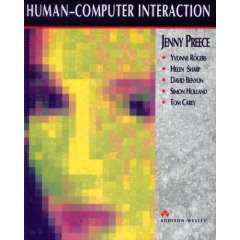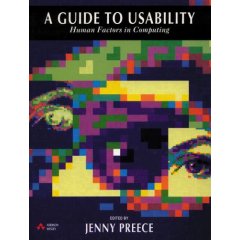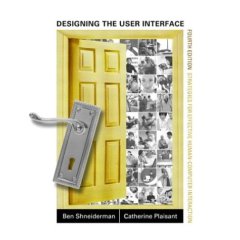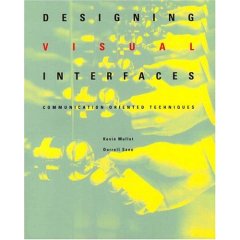Comp 140 - Course Outline
Course Links
Computer Science 140 Outline
Instructor
| Name | Mr. Stephen Lang |
| Office | Tech 252 |
| Phone | 370-4454 |
 |
|
| MSN ID | SL_Camosun - at- hotmail.com |
Evaluation
| 15% | midterm (tentatively scheduled Friday November 8) |
| 45% | lab assignments |
| 35% | final exam (not yet scheduled - third week of December) |
| 5% | quizzes (some may be in class) |
Failure to write an exam as scheduled earns an automatic grade of F unless an acceptable medical reason is given accompanied by a physician's signed note. |
|
| A student must complete all assignments and exams in order to qualify for a possible A+, A, or A- grade in the course. | |
| The standardized Camosun College grading scale will be used. (See the College Calendar.) | |
Timetable
Classes have two sections. You attend either the 1 or 2 section of lectures and one of the lab time slots.| MON | TUE | WED | THR | FRI | |
|---|---|---|---|---|---|
| 8:30 to 9:20 | C140 1A Tech 150 |
C140 2C Tech 150 |
C140 2B Tech 150 |
||
| 9:30 to 10:20 | office | ||||
| 10:30 to 11:20 | C140 1B Tech 150 |
C140 2 Tech 181 |
C140 2A Tech 150 |
C140 2 Tech 181 |
|
| 11:30 to 12:20 | C140 1 Tech 181 |
C140 1 Tech 181 |
|||
| 12:30 to 1:20 | |||||
| 1:30 to 2:20 | |||||
| 2:30 to 3:20 | office | ||||
| 3:30 to 4:20 | C140 1 Tech 174 |
C140 2 Tech 181 |
|||
| 4:30 to 5:20 |
Office Hours: Monday 2:30, Wednesday 9:30 or contact me via email, IM, or office phone.
Assignments
| Assignments are due at the start of your assigned lab date. Late assignments will be docked marks (5% per day not including Mondays, weekends or holidays) unless an acceptable medical reason is given accompanied by a physician's signed note. |
| If an assignment requires a demonstration in the lab, you must be ready to demonstrate your solution at the beginning of your lab session. If due to other obligations your instructor does not have time to mark your demonstration during the lab time, it is your responsibility to arrange an alternate time with your instructor before the end of your lab section. Failure to arrange an alternate time will result in the forfeiture of marks for that demonstration. |
| The number of marks given for an assignment does not necessarily indicate that assignment’s relative importance or weight in the overall marking scheme. The actual weightings are at the discretion of the instructor. |
| Only those assignments or portions of assignments that are marked will count toward the final grade. |
| Some labs may request an estimate of the time you dedicated to the completion of a lab. |
Web Pages
| You will be required to produce web pages within the context of the course. Your web pages will be visible to the internet community. Any objectionable or offensive material will be removed immediately and the student posting the material may be subject to disciplinary actions. Your instructor is the final authority on what constitutes objectionable or offensive material. Please keep in mind there are regulations which prohibit the use or modification of copyrighted images and other material within the College. If in doubt, ask your instructor. |
Texts
 The
one recommended (not required) textbook is Learning Web Design by Jennifer Robbins.
There are a number of online references to material as well.
See the instructor if you wish to purchase your own reference books. The
one recommended (not required) textbook is Learning Web Design by Jennifer Robbins.
There are a number of online references to material as well.
See the instructor if you wish to purchase your own reference books. |
Suggested Reading (HCI component)
 |
Human-Computer Interaction. Jenny Preece. Addison-Wesley Publishing. 1994 |
 |
A Guide to Usability. Jenny Preece. Addison-Wesley Publishing. 1993. |
 |
Designing the User Interface , Camosun Library, 3rd Edition. B Shneiderman. Addison-Wesley Publishing. 1997. |
 |
Designing Visual Interfaces. K. Mullet & D. Sano. SunSoft Press. 1995. |
 |
Handbook of Usability Testing. J. Rubin. John Wiley and Sons. 1994. |
 |
The Elements of User Interface Design. Theo Mandel. John Wiley and Sons. 1997. |
 |
Designing Web Usability. Jakob Nielsen. Peachpit Press. 1999. |
Lab Equipment
|
There are five lab periods during each week for this course. Each student is assigned to one of the lab times. Generally you will not be able to make up a missed lab by attending another one later in the week as the lab stations will likely be fully booked. Check with the instructor if you need to reschedule your lab. The two CST lab rooms (Tech 150, 151) are accessible using your student card at the door swipe. Lab rooms are accessible after hours and on weekends up to 11:00 PM. You can use the CST labs any time during the day so long as a lab session is not already in session. Please respect the environment while working in the lab room. Loud banter may be humorous for some but likely distracting for others concentrating on their work. Please leave the lab room to use your cell phone. Food and drink are not permitted in the lab room at any time. Use head phones when working with sound or music in the labs. Save your computer work frequently. Use a USB memory stick (and identify it as yours). Print charges are enabled through your account. If you exceed your print allotment, please contact either of the CST lab technicians in Tech 152: Dave or Mike. Abuse of printer usage privilege may result in the suspension of that privilege. Students are responsible for picking up their printer output from the printer and placing any unwanted papers into the recycle bin. |
Guidelines for behaviour during class and lab
|
I am including this section for the rare instance there is someone who needs to know in advance what is and isn't disruptive class behaviour.
|
Guidelines for students regarding fraud
These guidelines concern the type of fraud where a student
presents, as his/her own, the work of another individual, or where a
student allows another student to do so.
Students are encouraged to study together, to help each other learn
concepts and practical tools. Both the student who helps another and
the student who is helped benefit from the process. Working together is
formally encouraged in certain courses by having group assignments.
However, unless specifically indicated, all work submitted for grading
must be the work of the individual student. Students may collaborate on
submitted work only when this is explicitly permitted by the Instructor.
The sharing of lab work electronically or by other means is considered
fraud unless specifically approved by the Instructor in advance. This
includes obtaining code or other materials by methods such as
undeleting files or retrieving discarded printouts. It is at the
Instructor's discretion to determine if two assignment or exams are
sufficiently similar to be considered shared work.
In the case of fraud, action will be taken commensurate with the
severity of the case. Actions taken will be one of: no marks for the
piece of work; failure in the course; or, in repeated case, expulsion
from the College. In serious cases, the action taken will be determined
by the Computer Science Department Student Review committee in
consultation with the course Instructor.
There is an appeal procedure outlined in the Camosun College Calendar.
